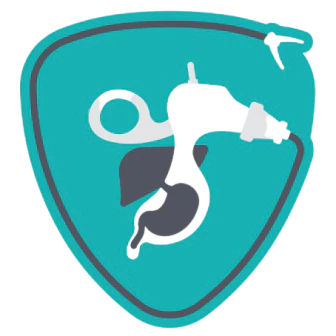Your gut microbiome, the vast ecosystem of bacteria residing in your digestive tract, plays a surprisingly critical role in your overall health. From digestion and immunity to mood and even skin health, the gut’s influence extends far beyond your stomach. But did you know your gut health can also significantly impact your menstrual cycle? This surprising connection is gaining increasing attention, and understanding it can empower you to optimize both your gut and menstrual health.
The Body's Intricate Network:
Our bodies are a marvel of interconnected systems, and the gut is a central player. It houses trillions of microorganisms, both beneficial and harmful, that constantly interact with each other and influence various bodily functions. This complex ecosystem, the gut microbiome, helps break down food, synthesize essential vitamins, and regulate immune function.
The Gut-Menstrual Cycle Link: A Surprising Connection
While the gut-brain connection is a well-established concept, the gut-period link is a relatively new and exciting area of research. However, growing evidence suggests a strong correlation between gut health and menstrual health. Here’s a deeper look at the underlying connection:
- Hormonal Regulation: The gut microbiome plays a role in metabolizing and eliminating estrogen, a key reproductive hormone. An imbalance in the gut bacteria can disrupt this process, leading to hormonal fluctuations that affect your menstrual cycle.
- Inflammation: Chronic inflammation has been linked to irregular periods and even conditions like endometriosis. The gut microbiome plays a crucial role in managing inflammation throughout the body, and an unhealthy gut can contribute to systemic inflammation, impacting your menstrual cycle.
- Nutrient Absorption: A healthy gut ensures optimal absorption of essential nutrients, including vitamins and minerals crucial for hormonal balance and reproductive health. Deficiencies in these nutrients can disrupt your menstrual cycle.
- The Gut-Brain Axis: The gut and brain communicate through a complex network of nerves and hormones known as the gut-brain axis. Stress, a significant factor in menstrual irregularities, can negatively impact gut health, creating a vicious cycle.
Supporting Both Gut and Menstrual Health:
The good news is that by prioritizing gut health, you can positively influence your menstrual cycle and overall well-being. Here are some key strategies:
Prebiotics and Probiotics: Prebiotics are dietary fibers that feed the good bacteria in your gut. Probiotics are live bacteria that directly contribute to a healthy microbiome. Incorporate prebiotic-rich foods like fruits, vegetables, and whole grains into your diet. Consider probiotic supplements after consulting your healthcare professional.
Fiber-Rich Diet: Dietary fiber promotes gut health by aiding digestion and supporting the growth of beneficial bacteria. Aim for a diet rich in fruits, vegetables, legumes, and whole grains.
Manage Stress: Chronic stress can disrupt both gut and menstrual health. Practice stress-reduction techniques like yoga, meditation, or deep breathing to improve your overall well-being.
Reduce Inflammatory Foods: Processed foods, sugary drinks, and excessive red meat can contribute to gut inflammation. Opt for a balanced diet rich in anti-inflammatory foods like fruits, vegetables, and omega-3 fatty acids.
Identify Food Sensitivities: Food sensitivities can irritate the gut and contribute to menstrual irregularities. Consider working with a healthcare professional to identify potential food sensitivities.
The connection between gut health and menstrual health is a fascinating and emerging area of research. By understanding this link and prioritizing a healthy gut microbiome, you can potentially regulate your menstrual cycle, alleviate symptoms like cramps and bloating, and promote overall well-being. Remember, a holistic approach that combines dietary changes, stress management, and potential supplementation can significantly improve your gut health and optimize your menstrual cycle. So, listen to your gut – it might just be the key to a healthier and happier period!

